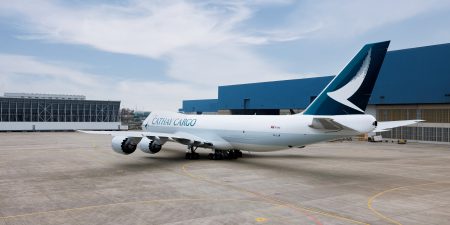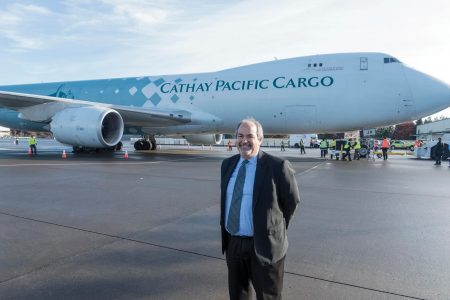Tell us about the Americas
Our region stretches from Alaska in the north down to Mexico and Latin America. We have 18 stations across the US, Canada and Mexico and each has something unique.
What are the main flows from these bases?
New York is a high value market. We ship a lot of artwork, jewellery and currency. From Boston, seafood – including live lobster, which has to be at market within 72 hours.
Going down the east coast to Atlanta, we have a lot of general cargo, but among the specialist shipments, is baby chickens.
Further south again, Miami, which is the gateway to Latin America. A very large percentage of the freight we ship out of Miami to Asia are perishables, including flowers, produce and seafood.
In Chicago, we ship huge, heavy dense freight. We get a lot of everything – it’s a freight carrier’s dream. South from there to Texas, in Houston and Dallas we get big heavy equipment for the oil and gas industries, plus general cargo.
On the west coast, we have perishables and produce – again, lobsters – but also a lot of pharma from Los Angeles.
In Mexico, we pick up a lot of perishables, plus autoparts and IT. We have a good balance of goods going in and out.
Up to Canada and Toronto we get seafood, plus industrial goods. Calgary like Texas, we pick up supplies and equipment for oil and gas. Then on the west coast, Vancouver is all about seafood and perishables, including cherries.
And finally in the very far north we have Anchorage, which is a transit station primarily for us, but we also carry seafood – crabs and geoducks – from there as well.
The one thing they have in common is they handle goods that need to get to their final destination in a finite period of time.
What do you like best about cargo?
It’s a more immediate type of business. You’re dealing with the current economy, the trade flows of the moment. If there’s a new product, we’re carrying it. You don’t get the same immediacy on the passenger side. Also, and I know this sounds like a cliché, but cargo is a people business, and relationships important. We know the people we work with, not only locally but globally.
What are the challenges and opportunities?
The biggest challenge is capacity. It’s no secret and an industry-wide issue. In terms of the opportunity, the Chinese middle class is growing and they’re buying better products than they were 10 years ago. They want fresh berries, and fresh produce. They want lobsters. And that’s the beauty of it. We have a large freighter network into the Americas, but we also have a large passenger network, with frequent flights. Combine that with our network into the Chinese mainland and we get products to consumers very quickly. You can’t do that by sea.
Explain the partnership with LATAM Airlines
The easiest way to look at our relationship is if you look at our route network and overlay it with theirs. We complement each other very well. All of the cargo flows from Latin America get fed into the US, and from there we can go to all points in Asia and vice-versa. Individually, we couldn’t do this, but together we have a product that no-one else can match.
What do you like most about the job?
On the cargo side you have to deal with the commercial and operational side. Our sales people have to be able to talk to customers about the operation in intimate detail. The more we understand, the better service we can offer our customers.
What do you do when you’re not working?
I travel probably 40 out of the 52 weeks of the year. My territory stretches as far north as Anchorage and south to Mexico so it’s a challenge to hit all 18 stations. I’m up to 15 so far this year. Yet when I’m not travelling around the world watching freight move, I’ll travel to Hawaii, the Caribbean or Europe. I’m a New Yorker but my wife lives with me in LA, and her whole family is from there. Our son lives in Northern California – and fortunately he’s off the payroll. He’s gainfully employed as a civil engineer designing bridges.

